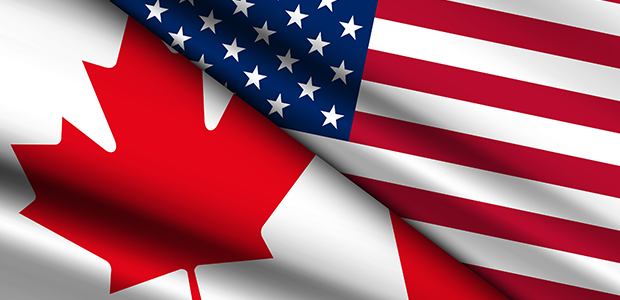
Increasing Tariffs On Canadian Imports Could Have Severe Consequences
In a research note it sent to subscribers in late December, ClearView Energy Partners cautioned that a trade war between the United States and Canada would have “few obvious winners.”
The note points out that on November 25, President-elect Donald Trump posted on Truth Social that he would increase tariffs on Chinese imports by 10% and on imports from Canada and Mexico by 25% to encourage increased attention on stopping fentanyl movement into the United States. Trump said these tariffs would apply to all imported products.
If the president-elect follows through and the resulting tariffs survive legal challenges, ClearView suggests that Canada and potentially Mexico eventually could secure exemptions for energy products. However, that process could take weeks or months.
Canadian leaders have threatened to respond to any tariffs by halting power exports. “A retaliatory Canadian cutoff of power exports to New England could have a severe impact given the region’s import reliance (especially amid slowing offshore wind deployment),” ClearView warns. It adds that PADDs 2, 4 and 5 (the Midwest, the Rocky Mountains and the West Coast) “rely significantly on Canadian gas imports.”
The U.S. nuclear industry also depends on Canadian imports, ClearView notes. “A long-term disruption of Canadian uranium fuel exports could adversely affect operations for existing and future nuclear power plants in the United States, which remains years away from developing significant endogenous fuel supplies (and war in Ukraine has put Russian supply at risk),” the firm says.
Canada would have a strong incentive to fight tariffs, the note warns. “Even with this year’s start up of the Trans Mountain pipeline expansion to the Pacific Ocean, Canada still exports the majority of its oil to the United States (and Canada remains the principal heavy oil supplier to the United States),” it observes.
“Pundits have opined that Trump merely plans to use tariffs as a negotiating tool, and that threats are unlikely to be realized. We would not be so sure,” ClearView writes. “During his campaign, Trump elevated tariffs to a central position within his arsenal of economic force projection—maybe even ahead of financial sanctions—and he has continued to brandish them during his transition.”
The full research note contains details on Trump’s attitude toward tariffs, the legal mechanisms through which he could implement them, and trade flows for oil, natural gas, electricity and uranium. The research is presented as a “first look at potential implications of a tariff tussle,” suggesting the firm intends to continue following this issue (alongside other topics, such as permitting reform). For more information, contact ClearView by phone or email.
For other great articles about exploration, drilling, completions and production, subscribe to The American Oil & Gas Reporter and bookmark www.aogr.com.






